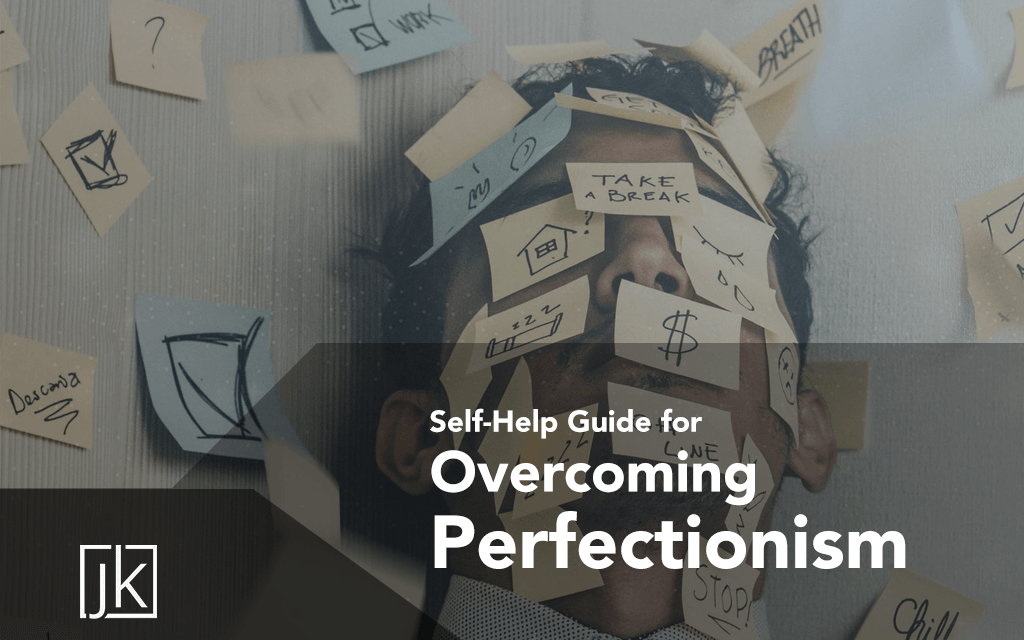
Some people are high achievers, and some people are perfectionists. Contrary to what some may think, these two terms are not the same. High achievers tend to have a positive outlook in life, they aim high, and they do their best to reach their goals. On the other hand, perfectionists tend to have issues achieving peace of mind. They also have a hard time enjoying life or seeing themselves in a positive light. Perfectionism allows an individual to achieve great things, but at the cost of their mental health. If you have perfectionistic tendencies, you can start with some steps to self-help or ask help from your loved ones.
Difference Between Perfectionists and High Achievers
Before you can address an issue, you must first understand its true meaning. There is a fine line between a high achiever and a perfectionist, understanding their difference will help you determine which you are, and what kind of help you need.
Here are some of the main differences between a high achiever and a perfectionist:
The Focus
One of the main differences of a high achiever and a perfectionist is where their focus is and how they handle their task. For instance, high achievers want to achieve excellence– they are happy about their achievements and learn from their mistakes.
On the other hand, perfectionists tend to beat themselves up for every little detail that isn’t– well– perfect. Even if they achieve excellent results, they don’t feel happy if it doesn’t pass their impossibly high standards.
The Fear
High achievers, even with their high standards, are not afraid of falling short. Although it might upset them a little, (because let’s be honest– failing does sting a little) they are not afraid of learning from mistakes.
Perfectionists, on the other hand, they are afraid of failure. They fear mistakes. They are scared of the possibility that they will become low achievers if they let themselves relax.
The Motivation
Lastly, high achievers are motivated to do better for almost every try. They gain confidence the more they learn, while perfectionists tend to lose motivation over time.
Perfectionists tend to achieve less than people with healthier attitudes towards tasks. Why? Because their focus is on perfection, they are afraid of mistakes, and all this pressure diminishes their motivation to move forward.
Self-Help Step-by-Step to Overcoming Perfectionism
Perfectionistic behaviours can be unhealthy if left unchecked. It robs you of the satisfaction of finishing a task or triggers self-defeating behaviours like procrastination.
Here are some steps that you can take to overcome negative perfectionistic behaviours:
Analyse the benefits vs. the costs of your behaviour.
Perfectionists tend to fear the possibility that they are only effective because of their perfectionistic traits. If you feel this way, you need to take a step back and consider the question: but, at what cost?
As mentioned previously, people with healthier behaviour towards tasks tend to be more productive. Analyse whether holding on to your perfectionistic behaviour is worth your output and mental health.
List down all the ways that your perfectionistic behaviour is hurting you and the people around you. Once you see them on paper, you will find your direction and motivation to remove these traits.
Be mindful of your perfectionistic tendencies.
Try to understand your patterns and be more aware of them. Understanding your patterns will put you in a better position to change them. One of the things that you can do is write down your perfectionistic thoughts as they cross your mind or every end of the day. You can try starting a journal to help you keep track of your tendencies.
Pay more attention to positive things.
Perfectionists tend to focus on mistakes even in their best work, and sometimes it extends to other people’s best efforts. Sometimes it happens subconsciously and so naturally that it is difficult to prevent. If you are experiencing this, you need to actively make an effort to notice the positive things in your work and achievements. If you spot one detail that you dislike about your output, look for four, five, or six qualities that you do like about it.
The more you make an active effort to focus on the positive, the more you’ll get used to it until it eventually becomes a habit.
Self-Help by self-talk.
A perfectionist’s biggest and toughest critic is themselves. If you are a perfectionist, you know this to be true. You have a critical voice in your head saying that what you’ve done is not enough. The problem here is that the criticism you receive from yourself is nowhere near constructive. It constantly reminds you that you are never good enough. Well– don’t believe that.
If you want to overcome perfectionism, you need to learn how to question this “critic”. You need to learn how to alter what they say. At the end of the day, it is a part of you– and you should be kinder to yourself.
Take one step at a time.
Never rush. Perfectionists tend to set unreasonable standards with unreasonable deadlines. Do NOT do this to yourself. Understand that overcoming perfectionism is not going to happen overnight– not even in a week! It can take months, a year, or more depending on how much you struggle with consistency. Understanding the struggling is normal, this is not your fault. It is challenging to change what you have always known.
The same concept applies to everything else. If you need to work on anything, try to set realistic goals. Give yourself some room for error and give yourself some time to learn. Set small goals and reward yourself for every little achievement.
Try to handle criticism better.
Perfectionists tend to take criticisms from other people as a personal attack. This reason is why they tend to act defensively when someone tries to help them improve. Obviously, that’s not the way to go.
Not all criticism is destructive. Some people do want to help you improve through constructive criticism. Feedback can help you improve your output.
The Takeaway
At the end of the day, you need to learn how to enjoy the process. Perfectionists tend to pressure themselves into– well– perfection. The pressure makes it impossible for them to enjoy things as they are. Much like most of your tasks, you also need to learn how to enjoy the process of overcoming perfectionism.
Learn to let go of the idea that mistakes are the enemy and the thought that you are not good enough. You are a work in progress, you are good enough and learning will help you get better in your own time.
